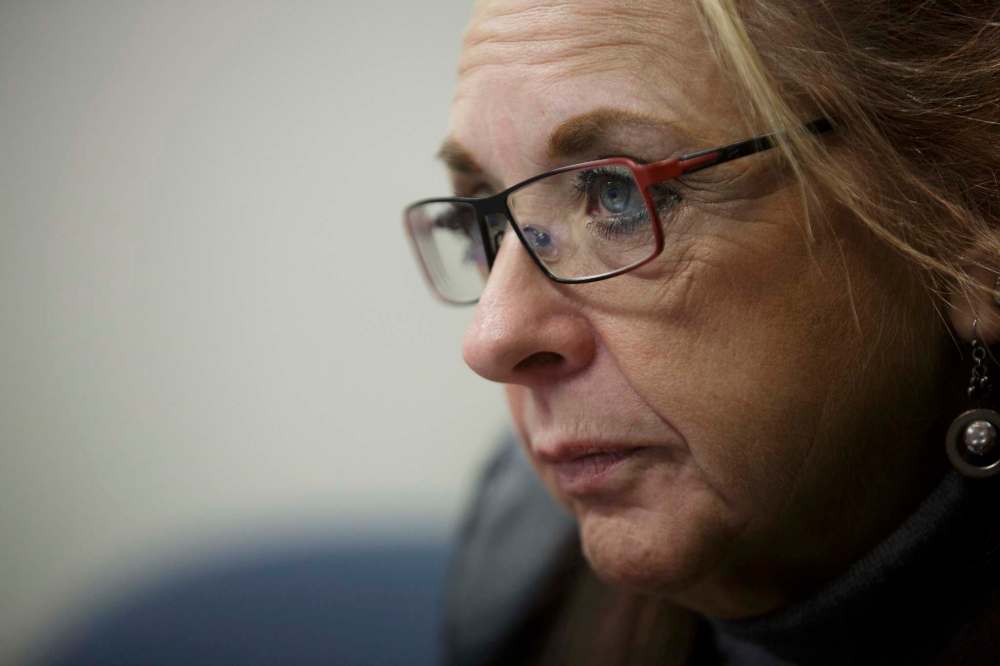Unions condemn gov’t plan to amalgamate health-care bargaining units
'This is about having unions pitted against each other'
Advertisement
Read this article for free:
or
Already have an account? Log in here »
To continue reading, please subscribe:
Monthly Digital Subscription
$0 for the first 4 weeks*
- Enjoy unlimited reading on winnipegfreepress.com
- Read the E-Edition, our digital replica newspaper
- Access News Break, our award-winning app
- Play interactive puzzles
*No charge for 4 weeks then price increases to the regular rate of $19.00 plus GST every four weeks. Offer available to new and qualified returning subscribers only. Cancel any time.
Monthly Digital Subscription
$4.75/week*
- Enjoy unlimited reading on winnipegfreepress.com
- Read the E-Edition, our digital replica newspaper
- Access News Break, our award-winning app
- Play interactive puzzles
*Billed as $19 plus GST every four weeks. Cancel any time.
To continue reading, please subscribe:
Add Free Press access to your Brandon Sun subscription for only an additional
$1 for the first 4 weeks*
*Your next subscription payment will increase by $1.00 and you will be charged $16.99 plus GST for four weeks. After four weeks, your payment will increase to $23.99 plus GST every four weeks.
Read unlimited articles for free today:
or
Already have an account? Log in here »
Hey there, time traveller!
This article was published 10/05/2018 (2774 days ago), so information in it may no longer be current.
A new law aimed at streamlining collective bargaining in Manitoba’s health sector will add confusion and uncertainty to a stressed-out workforce, union officials say.
During the next 18 months, tens of thousands of health workers will participate in representation votes to determine if their current union — or a rival one — will act as their bargaining agent in the future.
The votes will take place as the province reduces the number of health care bargaining units to fewer than 50 from 182.

The Pallister government passed enabling legislation a year ago, but it did not proclaim Bill 29 until this week.
On Thursday, the government named Robert Pruden, a former Manitoba government labour negotiator who has experience in the private sector, as the commissioner heading the process.
The law gives Pruden considerable power. He will determine the composition of both provincial bargaining units as well as those existing within each of Manitoba’s five health regions. He will be responsible for conducting secret ballot votes as workers choose their unions, and he will designate which existing contract will form the basis for negotiations in each newly defined bargaining unit.
Health Minister Kelvin Goertzen said Thursday the new streamlined bargaining process will make it easier to schedule workers and improve overall operating efficiency. He noted that other western provinces operate with far fewer health care employment contracts.
"When the system runs better, those who are working in the system do better as well," he told reporters.
However, several unions affected by the law condemned the process as a waste of money that will be disruptive to workers and hurt patient care.
They are concerned it will further delay collective bargaining. The vast majority of health workers are working under a contract that will soon expire or has already expired.
"This is not about improving patient care. This is about having unions pitted against each other," said Michelle Gawronsky, president of the Manitoba Government and General Employees’ Union, which represents 17,500 health workers. Eight-thousand of them are expected to be forced to participate in representation votes.
While they acknowledge Manitoba has a lot of health bargaining units, the unions insist the current system operates efficiently since wages and most benefits are negotiated jointly.
"We see (rationalizing bargaining units) as a completely unnecessary cost to the system," said Lee MacLeod, regional director with the Canadian Union of Public Employees, which represents 11,500 health-care workers in Manitoba. "There’s no reason to do it. Health care agreements are already bargained at a central table."
The Health Sector Bargaining Unit Review Act requires the establishment of as many as seven bargaining units for each health region and provincewide employer. Bargaining unit categories will include: nurses, physicians, medical residents, physician assistants and clinical assistants, professional/technical/paramedical, facility support and community support workers.

The Manitoba Nurses Union, which represents 97 per cent of all provincial nurses, is hoping the commissioner will exempt it from the cost and confusion of undergoing a representation vote, president Sandi Mowat said.
If a nurses vote is required, it’s conceivable, for instance, that the nearly 1,600 nurses at St. Boniface Hospital, all MNU members, could find themselves being asked to choose between their union and the MGEU, CUPE, the Public Service Alliance of Canada and other unions that also represent some nurses.
"It’s a waste of resources," Mowat said.
NDP MLA Tom Lindsey said health workers concerned about the possible loss of their jobs due to Tory hospital reforms will face an additional strain. "The more stress you put on workers, the worse it’s going to get for the people receiving care from them," he said.
Goertzen said the province has budgeted $250,000 to carry out the process. He said that investment will soon pay for itself in a more efficient health system. He called the 18-month timeline "a worst-case scenario."
He said he hopes the job can be done sooner than that.
larry.kusch@freepress.mb.ca

Our newsroom depends on a growing audience of readers to power our journalism. If you are not a paid reader, please consider becoming a subscriber.
Our newsroom depends on its audience of readers to power our journalism. Thank you for your support.


